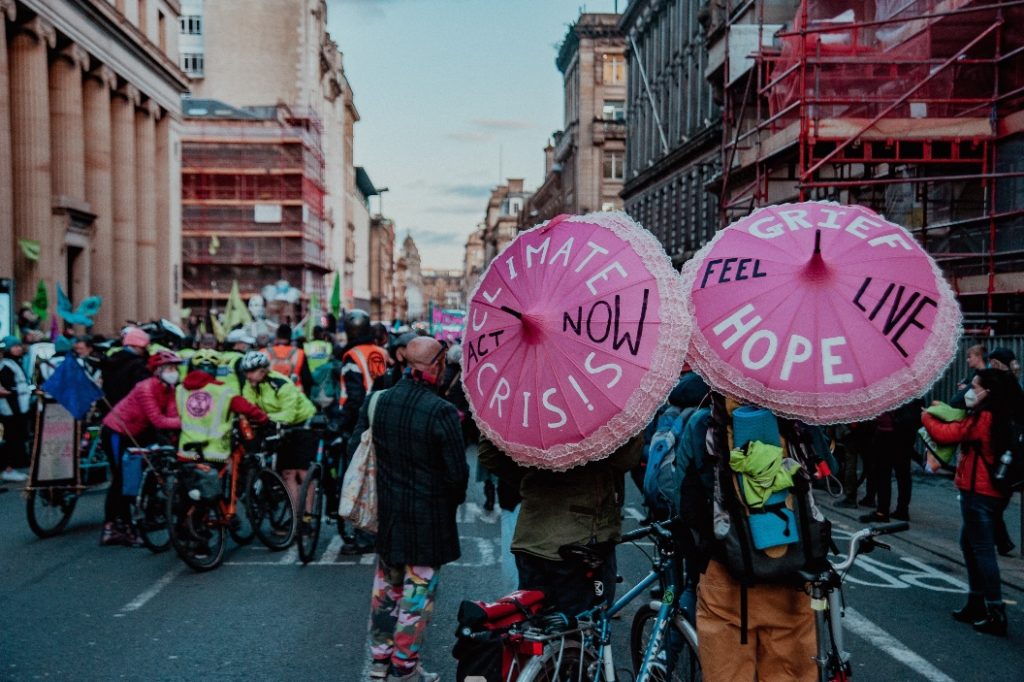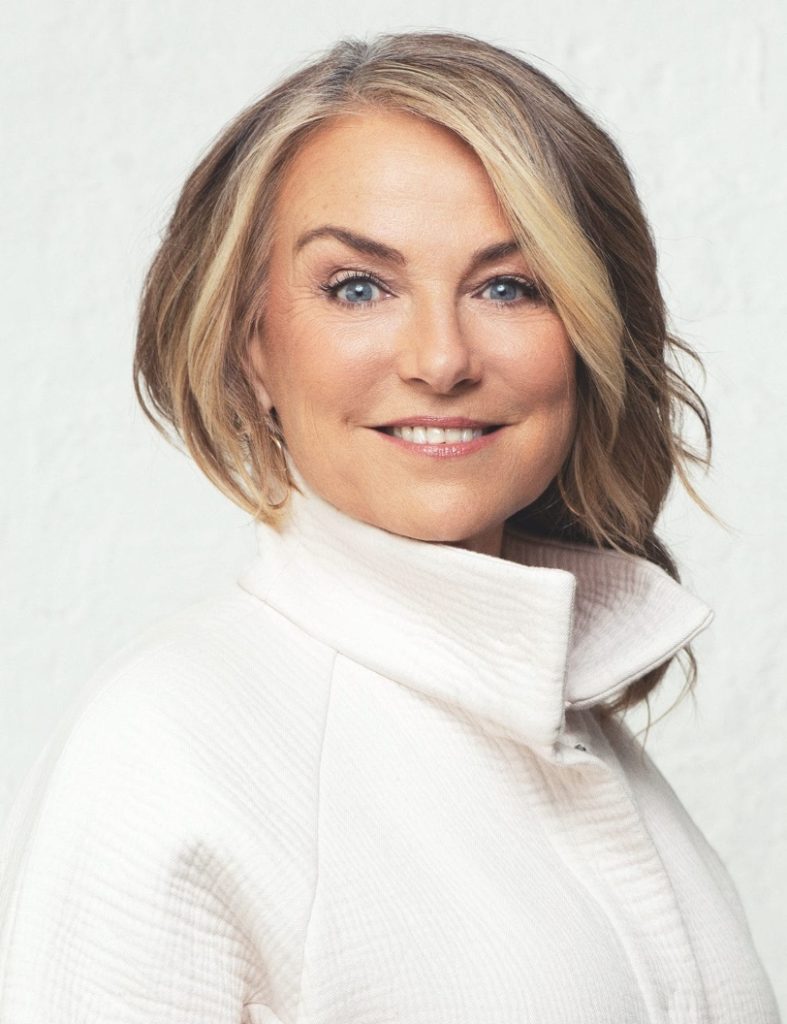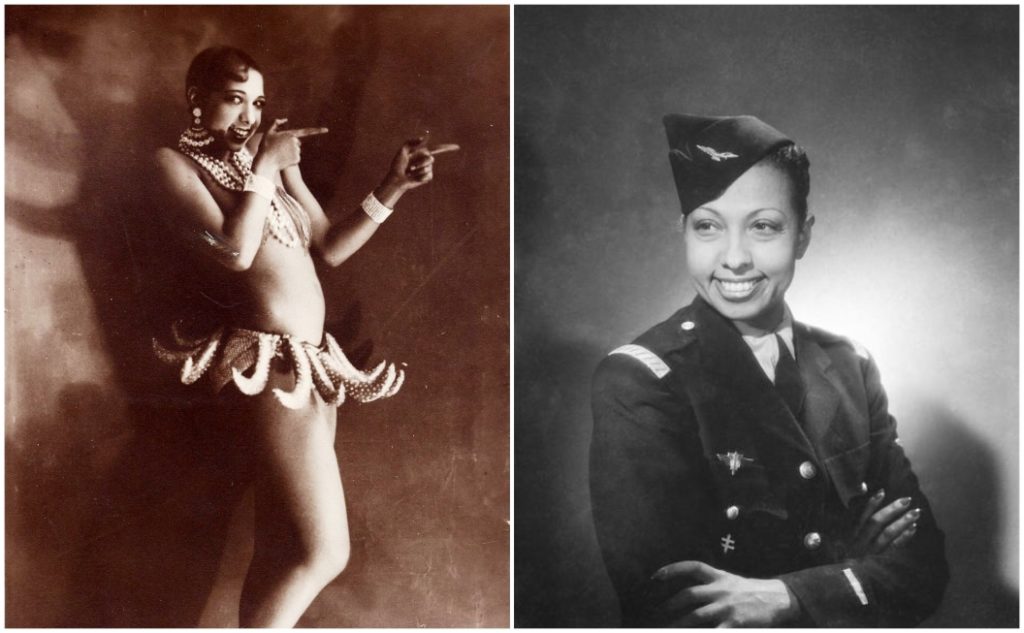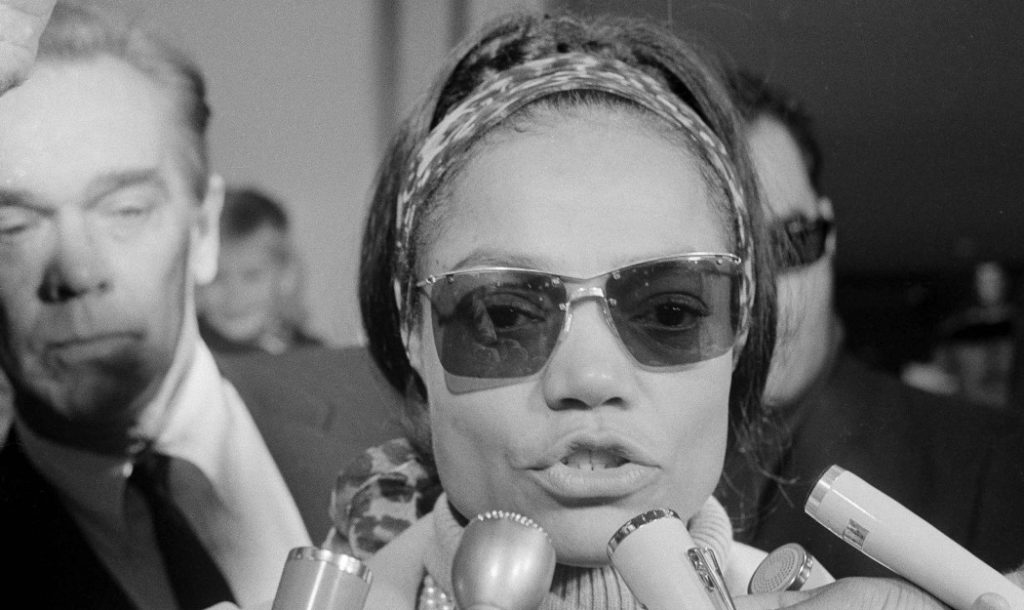We all have women who’ve inspired us, and most likely they’ve gotten in trouble for something.

Anne Cox
Production Manager
Last year, the United Nations Climate Change Conference was held in Glasgow and was filled with young female climate activists. But there was one activist that stood out amongst everyone, even the famous world leaders: A 14-year-old girl from India named Vinisha Umashankar. She spoke about the younger generation and how they are angry and frustrated at empty promises around climate action. “I’m not just a girl from India; I’m a girl from Earth.” Climate change is one of the things that keeps me up at night. If there’s going to be any progress made, it will come from the younger generation fighting for it, and Vinisha has already made great strides.

Kirsna Menier
Director of Events and Branding Strategy
Monogamous versus polyamorous. Fetishes. Why we cheat versus why we stay. All subjects that used to be so taboo that we were drowning in our own curiosity. Esther Perel has opened the doors to communicating, understanding, questioning and redefining modern-day relationships. Born and raised by Holocaust survivors in Belgium, Esther came to the States in graduate school to study the relationships of other immigrants. She asked questions no one dared to and wrote papers on subjects others only spoke about behind closed doors.
Without hesitation Esther was on a mission to bring humankind to a better understanding of themselves, regardless of how many feathers it may rustle. “I wanted people to question themselves, to speak the unspoken and to be unafraid to challenge sexual and emotional correctness.” Many years later, Ester Perel has achieved her goal with multiple bestselling books, TED talks, podcasts and even a sold-out game aimed at getting couples to tell each other their stories without fear of judgment. She has no plans for slowing down and continues her study on neuroscience, attachment theory, neuro-linguistic programming and psychodrama.

Jen Ramos Perkins
Business Operations Manager
Josephine Baker has been one of my favorite rebels and greatest heroes since I began studying dance in elementary school. Born in St. Louis in 1906 to a washerwoman and a father who left them when she was 8, Josephine worked as a maid, a waitress, a comedic performer with entertainment troupes and studied chorus line routines while working as dresser. This eventually led to more prominent roles in the successful Broadway shows Shuffle Along and The Chocolate Dandies. Despite the success of the Broadway shows, America never fully respected and appreciated Josephine and she eventually went to Paris with La Revue Negre, where she was revered. She stayed in France, where she became a superstar, opened her own club and recorded music, eventually becoming the highest paid entertainer in Europe.
She honorably served France as a Correspondent during WWII. She tried to return to the U.S. several times and never received the respect and recognition she deserved, often having to enter through venue backdoors and kitchens to get to the stage to perform. She learned and thrived in a racist country—and then created her own opportunities for success in a country that loved her without ever relying on a man for financial support. Talent, tenacity, daring, laughter, love, bravery and unrivaled beauty. I still dream of a world where a Rainbow Tribe is the norm.

Cy White
Managing Editor
One of my greatest inspirations is Queen Ancestor Eartha Kitt. Her entire life was lived in rebellion. The fact that she succeeded (in exceptional ways) is testament to her strength and unapologetic belief in herself. There are so many instances to draw from: her open expression of her sexuality, her fearless subversion of gender norms, the way she always spoke out against not just blatant racism but the microaggressions people tend to dismiss (a great quote from her: “When I walk into a church, I only see paintings of white angels. Why?”).
But I’ll focus on her very vocal opposition to the Vietnam War. When she was invited to the White House by “Lady bird” Johnson (for her Women Doers Luncheon), she openly criticized the sitting President, Lyndon B. Johnson, for continuing a war that was then in its thirteenth year. As an advocate for the youth and having been very active in several youth groups, she understood the terrors of the war from the perspective of those who were being sent to Vietnam to essentially be unwilling casualties of war. “You send the best of this country off to be shot and maimed…They don’t want to go to school, ’cause they’re going to be snatched off from their mothers to be shot in Vietnam.”
After this point, she was essentially blacklisted from Hollywood. But she never took it back and she never apologized. Just one of a million reasons why she’s one of my inspirations.

